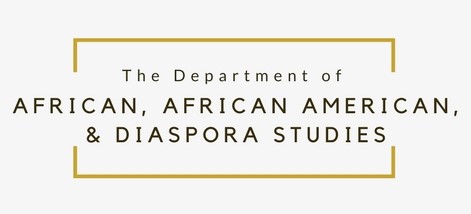Title:
Assistant ProfessorEducation:
A.B., Individualized, New York University; M.A., Performance Studies, New York University; Ph.D., Social Anthropology (specialization in African Diaspora Studies), University of Texas, Austin.
Teaching and Research Interests:
African diaspora studies, Performance studies, Black feminisms, Dance, Critical ethnographic methods Cuba, Latin America & Spanish-speaking Caribbean.
Current Research:
Berry is a social anthropologist specializing in performance studies and African diaspora studies. Her work uses a black feminist approach to understand racialized and gendered experience, social formations, performance practices, and political imaginaries. Using performance as an analytical lens, Berry focuses on both the movements of body politics and the corporeal bodies that constitute those political movements. This allows for consideration of how political economy, racial formation, and embodiment all play a role in political praxis.
From 2016 to 2017 Berry was a Postdoctoral Associate at the Institute of Sacred Music at Yale University, where she taught a course on dance ethnography, Afro-Cuban dance, and Cuban history, cross-listed in the Music Department, Theater Studies, African-American Studies, and the Ethnicity, Race, & Migration Program.
Berry’s current research examines what existing movements toward black self-making in the contemporary “post-Fidel” era can teach us about the Cuban Revolution’s “updating” economic model and visions for its future. Contemporary Cuba is marked by the expansion of the private sector and the amplification of racialized class inequality. Black-identified collectives are responding to these conditions in a range of ways where the body becomes a central tool of political articulation. Taken as a whole, Berry’s research explores the sacred and secular dimensions of black political lives within and beyond state institutions.
An adjacent project critically interrogates the embodied aspects of conducting engaged research in post-colonial contexts, theorizing from the specificity of black women’s sexed and raced relationship to these sites of investigation. This work charts a path to deepen a black feminist approach to politically engaged anthropology with implications for working in “the field” (praxis) and representing that experience (product).
Dr. Berry’s scholarship has been supported by the Ford Foundation, the Wenner-Gren Foundation for Anthropological Research, the Institute for Citizens & Scholars (former the Woodrow Wilson Foundation), the Institute of Sacred Music at Yale University, the Institute for the Arts & Humanities at UNC-CH, the John L. Warfield Center for African & African American Studies at UT Austin, and the Instituto Cubano de Investigación Cultural Juan Marinello (Havana, Cuba). Berry was invited to participate in two selective workshops to develop her current project: the Afro-Latin American Research Institute’s Mark Claster Mamolen Dissertation workshop at Harvard University’s Hutchins Center and the Dance Studies Association/Mellon Pre-conference seminar for Emergent Scholars at Northwestern University.
For her teaching she was awarded the UNC Office of the Provost Engaged Scholarship Award in Engaged Teaching in 2020, and the 2021 UNC Johnston Teaching Excellence Award.
Selected Publications:
Hope Bastian and Maya J. Berry. “Moral Panics, Viral Subjects: Black Women’s Bodies on the line during Cuba’s 2020 Pandemic Lockdowns,” Journal of Latin American and Caribbean Anthropology 27(1-2) (July 2022):16-36.
“In Mourning: Sociocultural Anthropology in 2020.” (Year in Review) American Anthropologist. Volume 123(4) (December 2021):931-947.
“Black Feminist Rumba Pedagogies.” Dance Research Journal. 43(2) (October 2021):27-48.
“La movilización del tema afrodescendiente en la Habana, 2012-2014: un estudio de las posibilidades del performance,” Cuban Studies Journal 48 (June 2019): 276-302.
Maya J. Berry, Claudia Chávez Argüelles, Shanya Cordis, Sarah Ihmoud, and Elizabeth Velásquez Estrada “Towards a Fugitive Anthropology: Gender, Race, and Violence in the Field”, Cultural Anthropology Journal 32(4) (November 2017): 537-565.
“‘Salvándose’ in contemporary Havana: rumba’s paradox for black identity politics”, The Black Diaspora Review. Volume 5, Number 2 (Spring, 2016): 24-54.
“From Ritual to Repertory: Dancing to the Time of the Nation”, The Afro-Hispanic Review. Volume 29, Number 1 (Spring 2010): 55-76.

